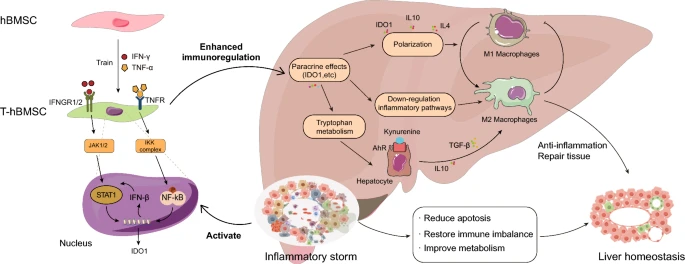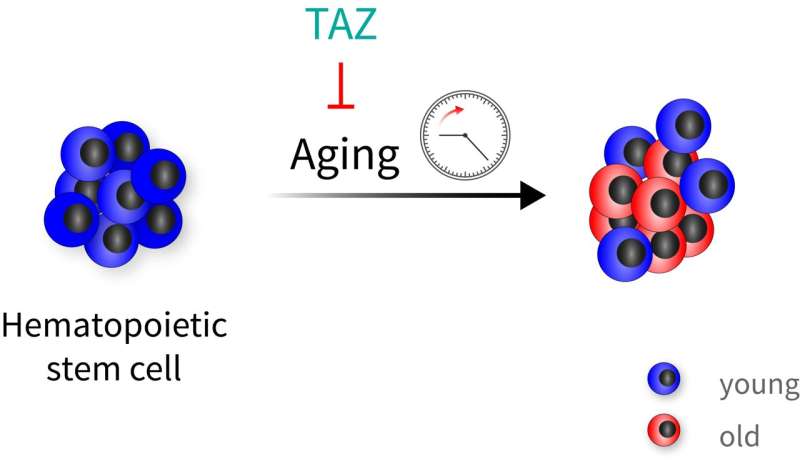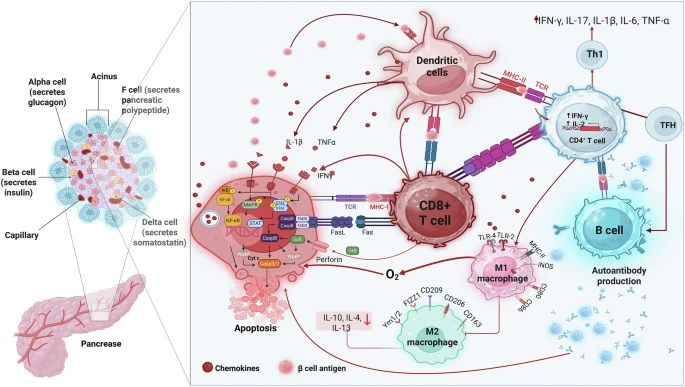DURHAM, N.C. (PRWEB)September 10, 2019 – A new study released today in STEM CELLS demonstrates that mesenchymal stromal cells (MSCs) expanded from adipose tissue (ASC) outperform those expanded from bone marrow (BM-MSCs). Importantly, while several previous studies have compared the performance of BM-MSCs versus ASCs, this is the first to pair MSCs from the same donor to show that tissue, rather than donor origin, is the functional predictor.
“Numerous clinical trials are evaluating the therapeutic potential of MSCs in degenerative and inflammatory diseases,” said lead investigator Karin Tarte, Pharm D, Ph.D., of the Université de Rennes. “However, the influence of their tissue of origin on their functional properties, including their immunosuppressive activity, remains unsolved.
“Prior to our study, the comparison of ASCs versus BM-MSCs was essentially completed using MSC batches obtained from different donors. We demonstrated for the first time on a large series of ASCs and BM-MSCs, obtained from the same donors, the strong impact of tissue origin on these cells’ properties. Moreover,” she added, “we pinpointed that ASCs could be an interesting alternative to BM-MSCs for therapeutic applications, considering their huge expression of anti-inflammatory and immunosuppressive molecules.”
To conduct their study, the investigators produced paired BM-MSC and ASC batches from 14 healthy donors, cultured under identical clinical grade-like conditions. They then compared them using transcriptomic (that is, all RNA molecules in a cell or a population of cells), phenotype (their physical characteristics) and functional analyses. Lastly, they validated the results on purified native MSCs to infer which differences were really endowed by tissue of origin.
What they learned was that the cultured MSCs segregated together by tissue origin rather than donor origin, which translated into distinct immune-related gene signatures, phenotypes and functional cell interactions.
“In particular, ASCs exhibited an immune profile consistent with a stronger inhibition of T-cell and myeloid cell immune response and a lower immunogenicity,” Dr. Tarte said. “This study supports the need to select therapeutic MSCs by tissue of origin functionality,” she concluded.
“The ability to assess key characteristics of adipose and bone marrow-derived mesenchymal stem/stromal cells from the same individual has not before been done on such a defined and large-scale manner,” said Dr. Jan Nolta, Editor-in-Chief of STEM CELLS. “The report from Tarte et al gives us an important comparison from which we can draw key insight for future clinical trials”.
The full article, “Integrated transcriptomic, phenotypic, and functional study reveals tissue-specific immune properties of mesenchymal stromal cells,” can be accessed at https://stemcellsjournals.onlinelibrary.wiley.com/doi/abs/10.1002/stem.3077.
About the Journal: STEM CELLS, a peer reviewed journal published monthly, provides a forum for prompt publication of original investigative papers and concise reviews. The journal covers all aspects of stem cells: embryonic stem cells/induced pluripotent stem cells; tissue-specific stem cells; cancer stem cells; the stem cell niche; stem cell epigenetics, genomics and proteomics; and translational and clinical research. STEM CELLS is co-published by AlphaMed Press and Wiley.
About AlphaMed Press: Established in 1983, AlphaMed Press with offices in Durham, NC, San Francisco, CA, and Belfast, Northern Ireland, publishes three internationally renowned peer-reviewed journals with globally recognized editorial boards dedicated to advancing knowledge and education in their focused disciplines. STEM CELLS® (http://www.StemCells.com) is the world’s first journal devoted to this fast paced field of research. THE ONCOLOGIST® (http://www.TheOncologist.com) is devoted to community and hospital-based oncologists and physicians entrusted with cancer patient care. STEM CELLS TRANSLATIONAL MEDICINE® (http://www.StemCellsTM.com) is dedicated to significantly advancing the clinical utilization of stem cell molecular and cellular biology. By bridging stem cell research and clinical trials, SCTM will help move applications of these critical investigations closer to accepted best practices.
About Wiley: Wiley, a global company, helps people and organizations develop the skills and knowledge they need to succeed. Our online scientific, technical, medical and scholarly journals, combined with our digital learning, assessment and certification solutions, help universities, learned societies, businesses, governments and individuals increase the academic and professional impact of their work. For more than 200 years, we have delivered consistent performance to our stakeholders. The company’s website can be accessed at http://www.wiley.com.



